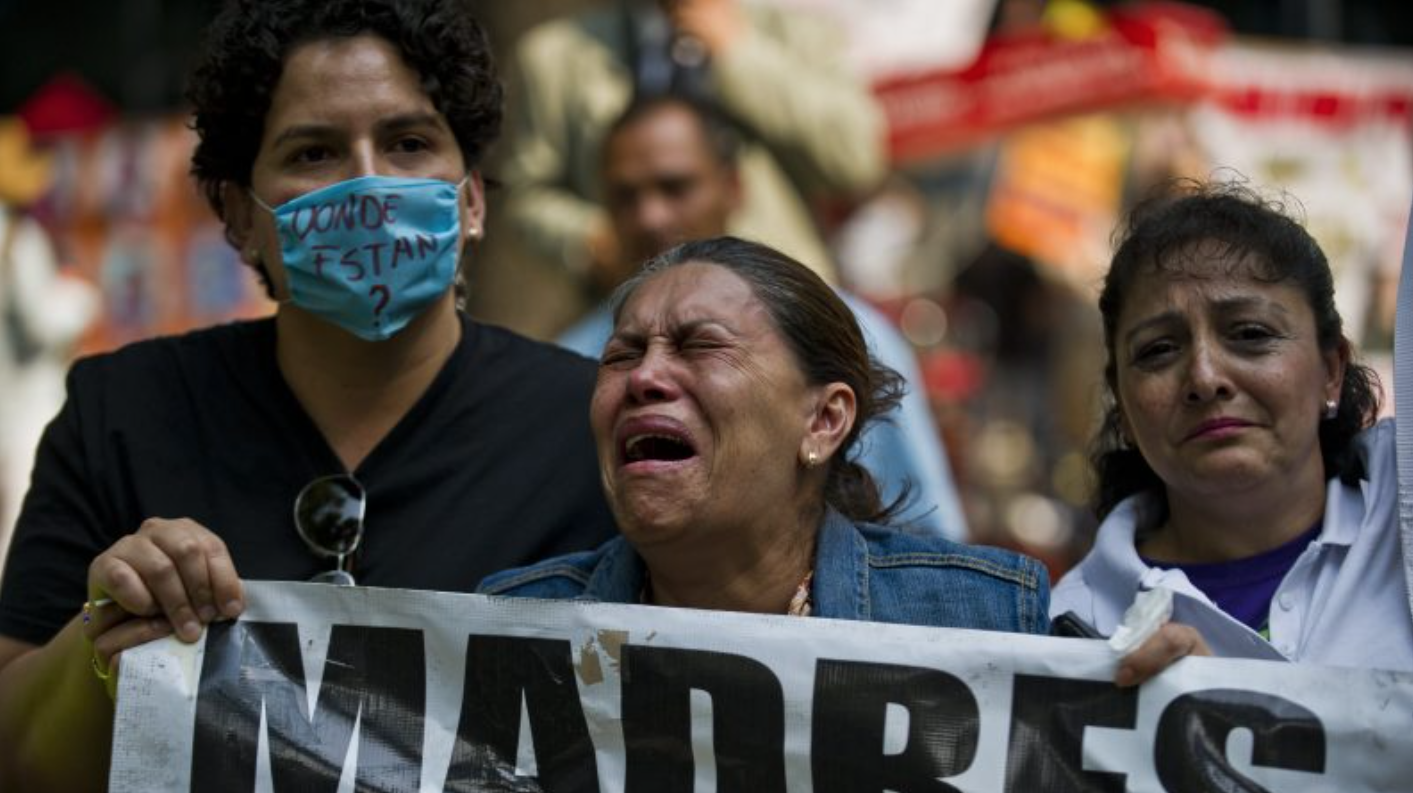The video of a half-naked mother carrying a written banner, claiming justice for the disappearance and death of her son in Mexico City’s main square, makes Mother’s Day take on a dimension that highlights the pain suffered by thousands of families, searching unsuccessfully for a missing relative among the more than 90,000 cases that have accumulated since 2006, according to a recent report cited by the Deputy Secretary of Human Rights, Population and Migration, Alejandro Encinas.
Groups of mothers with missing children filled the main squares and avenues of the country to make May 10th —Mother’s Day, according to Mexico’s tradition— a day for dignity and to highlight the incapacity of the three levels of government that deal with the problem. From Chiapas to Baja California, many cities were the scene of protests by tens of thousands of citizens, who don’t accept the reality that their children suffer and have suffered, let alone stop demanding justice from those in power.
Rosario Ibarra de Piedra died recently and she is perhaps the best known figure of this claim since the 1970s with the so-called Dirty War. During this time, hundreds of young people fought with weapons in hand for a more democratic Mexico and were arrested, many of which remained disappeared.
Jesús Piedra, her son, never appeared, nor did his remains, which probably rest in the waters of one of our seas, or in one of the clandestine graves that litter the national landscape. However, Rosario never abandoned the search for her son. In fact, her leadership for the claim of the disappeared was such that she became a presidential candidate in 1982 and 1988 for the Workers’ Revolutionary Party (PT), and was even nominated four times to receive the Nobel Peace Prize.
Rosario Ibarra de Piedra always sought to put the issue of the disappeared during the so-called Dirty War at the center of the public agenda. She even became senator and, later, when she received the Belisario Domínguez prize in 1989, her daughter transmitted a message in which this symbolic recognition was entrusted to President Andrés Manuel López Obrador, as a gesture of her unwavering struggle.
Nowadays, little is said about those who disappeared. In addition to the fact that some of those protesters are now part of the government —among them Rosario Ibarra’s own daughter— there is a new generation of missing. They are now the result of the increasingly protagonist role of organized crime that has managed to subdue governments and law enforcers, while not the result of the struggle against neoliberalism, as President Lopez Obrador is accustomed to pontificate.
There they are the images of this week’s shameful subjugation and persecution of the military by criminal groups, while the number of disappearances and intentional homicides is multiplying in every corner of the country.
Meanwhile, the president has decided not to face the mothers of disappeared children, following his well-known tactic of “whom I neither see nor hear”, which former President Carlos Salinas de Gortari applied to his political opponents at the time, especially those of the Party of the Democratic Revolution (PRD).
Could it be that President López Obrador has created a parallel reality for himself? Salinas de Gortari and other former presidents also did it. Since this type of representation has its own fixations, codes, interlocutors and truths, everything that goes outside that framework is ignored or is reduced to a routine message, like the one issued by AMLO this May 10th. He congratulated Mexico’s mothers and “those who are suffering for their children, for their missing ones”, and then, immediately, returned to the routine of their morning conferences, which are a paradoxical input of official journalism.
It is this political propaganda that ends up compensating for the constructionist imaginary and becomes an input for the lack of critical sense, submission, fanaticism and also lack of solidarity against all those who —such as the mothers of disappeared children— touch sensitive nerves that affect his government.
Make no mistake. Good governments do what the law requires and know that its enforcement is subject to accountability. For this, they don’t need political incentives. However, in the cases in which the idea of “don’t tell me that the law is the law” prevails, and this is endorsed by social and political support, what would force change the course of the government, including the lack of attention to the victims? Nothing.
There is a history of governments that have been forced to change their agendas in light of reality. There are the Movement of 1968, which turned into the liberalization of the political regime; the fraud of 1988, which accelerated electoral-type institutional reforms, leading to the creation of the Federal Electoral Institute (today the National Electoral Institute); or the Zapatista Movement, which became the recognition of the rights of indigenous peoples.
However, movements such as that of mothers with missing children— which are putting governments in collusion with organized crime in trouble— have not achieved the implementation of new public policies and budgets. These movements are not attended by a democratic state that should avoid images like that of that woman, who, in an act of desperation, took off her clothes in the country’s main square to make visible her drama and the drama of more mothers of children missing.
Translated from Spanish by Ricardo Aceves











